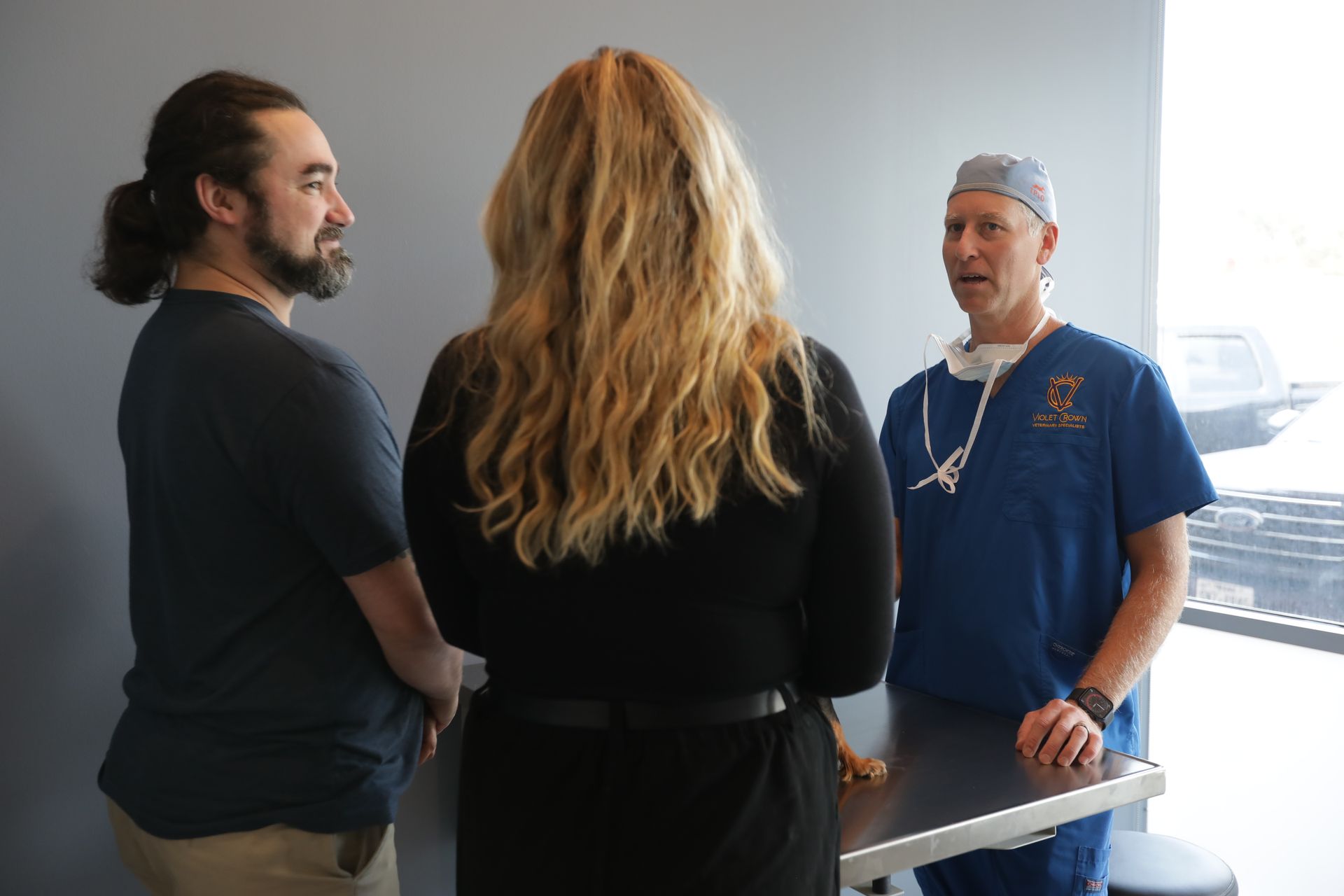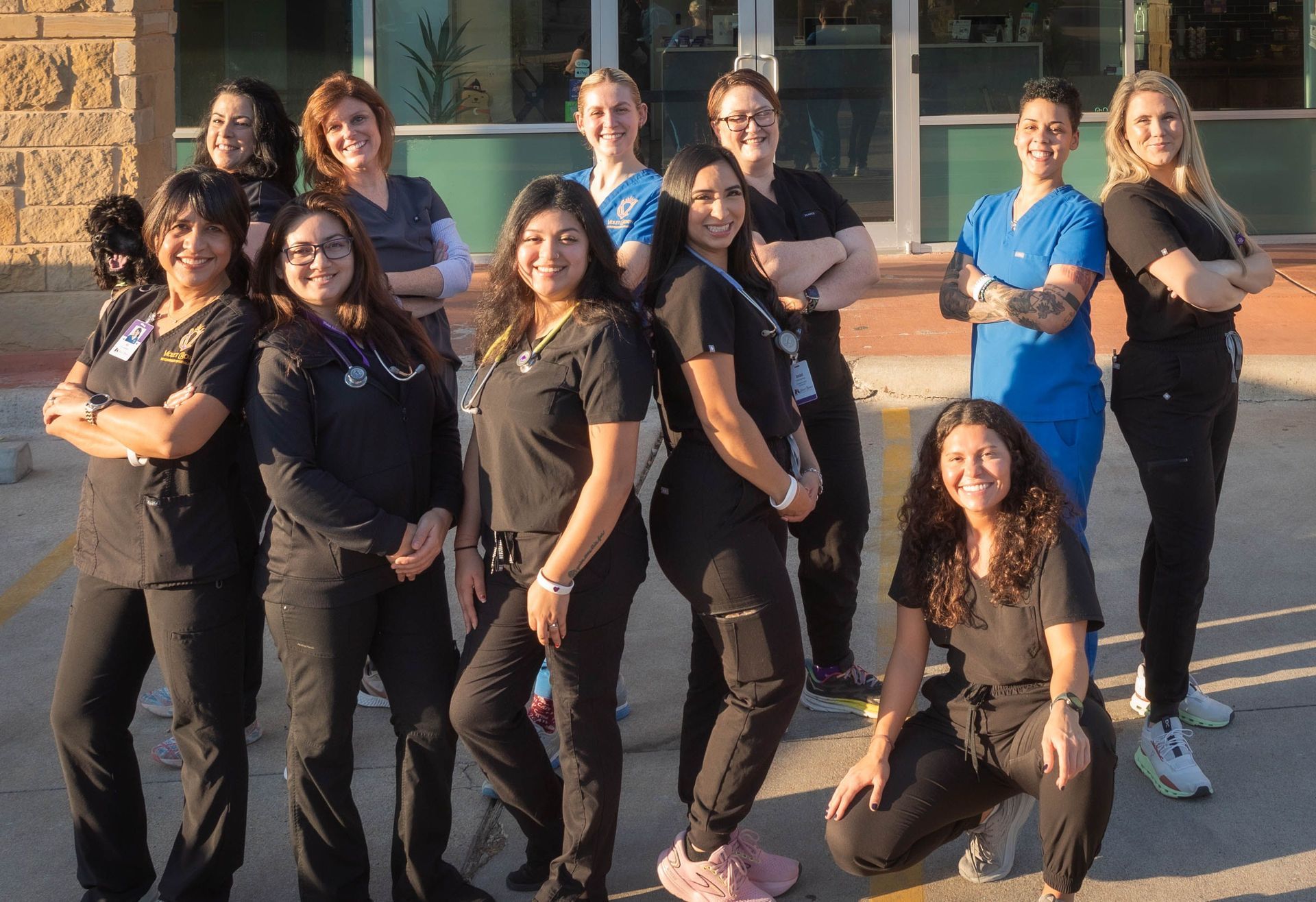Critical Care Department
Criticalists and hospitalists are the backbone of the hospital, providing oversight for all hospitalized patients and ensuring the sickest patients get the care and attention needed to give them the best possible chance at recovery. They have a whole range of tests and treatments at their fingertips to help make that happen.
In-house Blood Testing
Violet Crown Veterinary Specialists houses state-of-the-art blood analyzers on site to test your pet’s organ function, blood counts, and immune system within minutes. Results are shared with your primary care veterinarian nearly instantaneously.
Overnight Hospitalization
Our hospital is staffed 24/7 with doctors and nurses to ensure your pet receives all the treatments they need and that their needs are continually reassessed. This can include IV fluid supplementation, blood pressure monitoring and medications, IV antibiotics, pain relief medications, assisted nutrition, or urinary catheterization.

Continuous EKG Monitoring (Telemetry)
Cardiac dysrhythmias require continual monitoring, and immediate interventions, as they are brought under control by appropriate medications and treatments. Telemetry allows your pet to wear a small battery pack and transmits their heart rhythm to a central screen for the entire team to see.
Supplemental Oxygen
Heart and lung diseases, or very severe illness, can mean that your pet needs to breathe additional oxygen to meet its body’s requirements. This can be done through high-flow nasals cannulas or with specially designed kennels which supply additional oxygen while still controlling temperature and humidity.
Blood Transfusion
Anemia (low red blood cells) or coagulopathies (decreased ability to clot the blood) sometimes require blood from another pet to allow your pet to survive. VCVS keeps units of blood products on site to use as soon as they are needed for your pet.
Advanced Imaging
Radiographs (x-ray images) are often used as a first line test to help diagnose illness and show good outlines of the bones. Often if soft tissues are more involved, an ultrasound or a CT scan may be recommended to get more information. All of these tests are available at VCVS and will be reviewed by a board-certified Radiologist.
Emergency Procedures
Sometimes major interventions, like surgery or a scoping procedure, can’t wait. If our team of doctors determine that your pet needs these treatments imminently, they will happen regardless of the time or day.
Mechanical Ventilator
When the lungs or chest is so compromised that your pet can no longer breathe adequately on their own, a mechanical ventilator can be used to help them while their body recovers. This requires a dedicated nurse and continual veterinary supervision to provide the best possible care for your pet.

